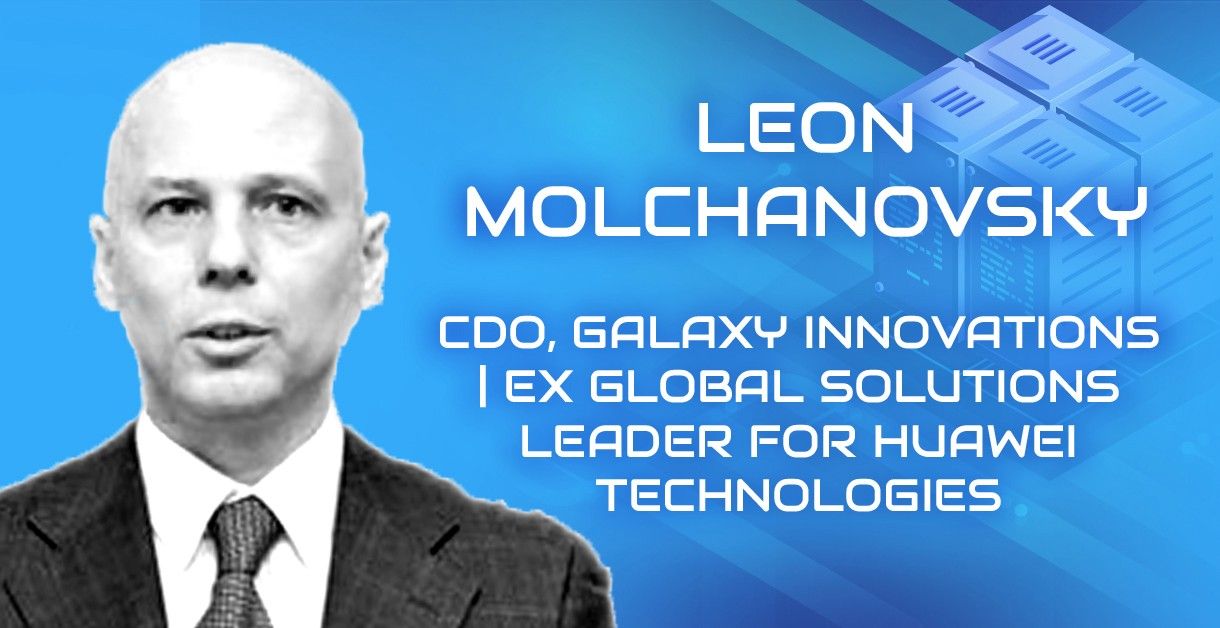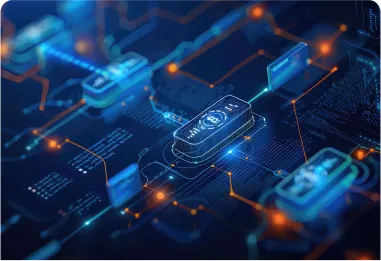
To help frame our conversation, could you tell me a little bit about Galaxy Innovation?
LEON MOLCHANOVSKY: Based in the UK, my partners and I at Galaxy Innovation help organizations leverage technology to advance their organizations in their digital transformation journey. We work from two vantage points: the supplier and the user. In the first case, our client might be a producer of products or services whose organization finds itself challenged to develop a product to meet current or changing market conditions. The market now requires outcomes, not product features. This is not easy for vendors as it requires a deep understanding of the market and of changing market demand.
When we are working with end-user organizations—such as manufacturers, governments, or service organizations—we help them understand which technologies will enable them to achieve their objectives. Obviously, technology is not an objective in and of itself. Technologies need to align with organizational goals, culture, and processes. Galaxy Innovation helps companies successfully face this challenge, to become more efficient and competitive.
Regardless of whether we are working with a supplier of products and services, or a user of those, we formulate strategies to remain competitive and help organizations to implement changes and to strategically deploy the right technologies.
There are so many rapidly advancing technologies. Are there any advancements that are particularly exciting to you?
LEON M.: All technologies are exciting to me. Artificial intelligence (AI) is exciting because it tries to replicate the human brain. We are still in the early days, and even though the principles of AI were known decades ago, we’re still working on implementation. A foundational challenge, in addition to fundamental technology development, is that AI works to replicate the human brain, yet we don’t entirely know how the brain works.
Given this lack of understanding and continued technology development, even coming close to replicating the brain in software is unlikely to happen for at least the next fifty years.
The Internet of things (IoT) is fascinating because it uses software to connect humans and the physical world—“cyber-physical systems” is the term that has been coined—where different objects may have a connection to the digital world. We can exploit this capability to our advantage.
The truly fascinating advancement is quantum computing, which is based on low-level physical phenomena like quantum physics or quantum mechanics. Quantum computing began in the 1980s, when the field’s early pioneers developed the idea that a quantum computer had the potential to do parallel calculations that a classical computer could not. This theoretically allows achieving unrivaled performance to simulate things e.g. material behavior or drug effects.
The quantum computers that exist now solve individualized problems, like random number generation. We are still some years away from more universal applications. However, when these computers start coming online, they will completely change the landscape of what we have now—specifically by making calculations and predictions at a much more robust level. One big impact will be on internet security. The current internet is built on digital certificates that provide authentication and encrypt traffic. Quantum computing will make that obsolete. New security architecture will have to be developed.
However, quantum computing is still in the early stages of development. Right now, we have hundreds of qubits, but we will need hundreds of millions of qubits to make it really useful. Additionally, this transformation will require the complete rebuilding of the entire internet infrastructure.
Are there areas of development needed to allow technology advancement to continue?
LEON M.: Internet architecture itself is a universal issue. The DNS structure we have today was designed in the 1980s and has worked well, but the world has outgrown this architecture. The need for greater security and control has created demand and appetite to make this change. There is much debate as to how the Internet’s structure should evolve, who should have control over traffic and freedom/privacy/security balance. The United States used to have some control until recently but this has changed as other nations want some sovereignty. I expect there to be vigorous debate around the world, and there should be because as today’s internet evolves, it will affect everyone and everything around the globe touched by technology.
What ethical or fundamental societal changes does technology bring?
LEON M.: Technology changes societies by changing the ways people formulate ideas and make decisions. These changes often create significant challenges. For example, I argue that the immigration crisis in Europe can be in part explained by the rise of technology, even though it is not the root cause. Information and ideas can be shared instantly, and mobility is much more readily available at a lower cost. As a result, people have become more mobile and do things that 30 years ago were much more difficult, for example making a decision to migrate.
Citizens also demand direct involvement in how things are done in their countries. Technologically many decisions can now be made by a direct digital vote in a referendum. This puts pressure on governments and how societies are run. Political parties try to defend their relevance in the new era. Technology unquestionably disrupts the way society functions, both for the good and for the bad.
What technology advancements do you expect over the course of the next five years?
LEON M.: Rather than many radical new technologies, I expect the next five years to bring advancement of the technologies we are currently working on. Looking back to 2014, all the technologies we are talking about today existed. They have evolved and are more widely used and easier to use. I think the same pace will hold for the next five years. Human nature remains the same, and there is inertia built into the way we do things—the human culture that drives companies, organizations, and governments is stronger than any technology.
What advice do you have for emerging technology companies looking to succeed within the hypercompetitive market?
LEON M.: We advise all the emerging companies we work with to focus on three areas:
- Great vision with a good definition of the product and the problem the product solves.
- Fast and solid implementation of the idea. Everybody has ideas, not everybody does things.
- Great leadership to direct the team—the world changes and products need to evolve; leadership also needs to bring tremendous energy and enthusiasm to the table to steer the company around obstacles any emerging company will encounter.
—
Sphere Software (https://sphereinc.com), is the sponsor and organizer of Techdebates.org and also finds great value in these follow-up discussions with industry experts. Sphere is a technology consulting and solutions company. Everything we do is designed to accelerate your business, remove technical constraints and eliminate staffing bottlenecks.





